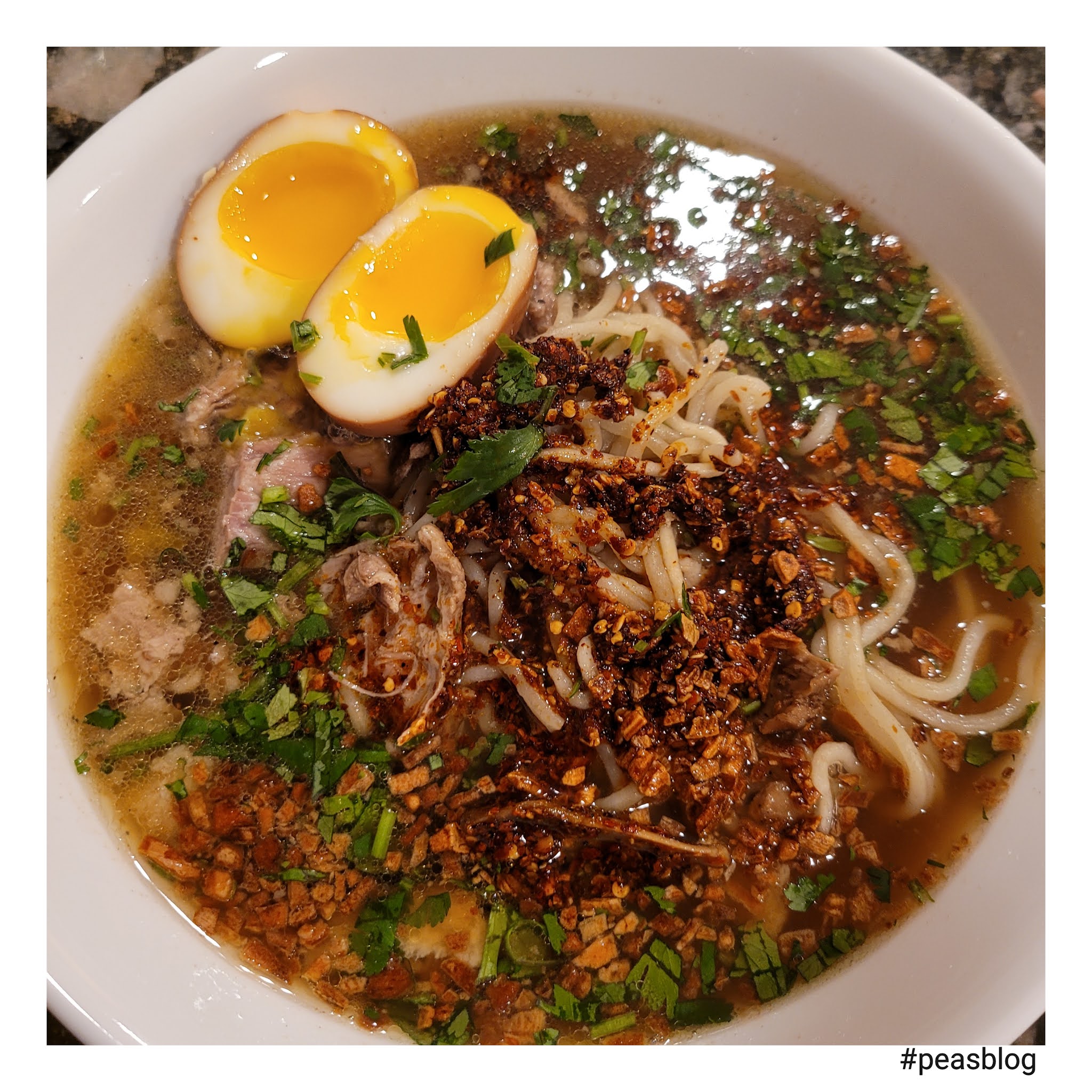In a world where fast food and instant meals reign supreme, the culinary convenience of ramen noodles has captured the hearts and appetites of millions. However, beneath the appealing packaging and comforting flavors lies a troubling health concern known as "ramen noodle disease." This term refers to the negative health implications associated with the excessive consumption of instant ramen noodles, which are often loaded with unhealthy ingredients. As we explore this phenomenon, it is essential to understand the potential risks involved and how our dietary choices impact our overall health.
Ramen noodles have become a staple in many households due to their affordability, quick preparation time, and satisfying taste. Yet, their popularity has led to an alarming trend of overconsumption, particularly among younger generations. This article aims to shed light on the implications of a diet heavy in ramen noodles, the nutritional deficiencies it may cause, and how it can contribute to various health issues. By raising awareness about ramen noodle disease, we hope to encourage healthier eating habits and promote better food choices.
Ultimately, understanding ramen noodle disease is not just about identifying a specific ailment; it is about recognizing the broader implications of our food choices in today's fast-paced society. By taking a closer look at the nutritional content of ramen noodles, we can make informed decisions that prioritize our health and well-being. Join us as we delve deeper into the world of ramen noodle disease and explore ways to mitigate its risks.
What is Ramen Noodle Disease?
Ramen noodle disease is not a formally recognized medical condition but rather a term used to describe the adverse health effects associated with the excessive consumption of instant ramen noodles. This phenomenon has gained traction in recent years as more people become aware of the nutritional pitfalls of these beloved convenience foods. The primary concerns associated with ramen noodle disease include:
- High sodium content
- Low nutritional value
- Increased risk of obesity
- Potential cardiovascular issues
- Possible digestive problems
How Do Ramen Noodles Affect Your Health?
The health impacts of ramen noodles can be quite significant, especially for those who consume them regularly. Here are some of the key areas where ramen noodles can affect your health:
1. What Makes Ramen Noodles So Unhealthy?
One of the primary reasons ramen noodles are considered unhealthy is their high sodium content. A single serving of instant ramen can contain anywhere from 800 mg to over 1,500 mg of sodium, which is well above the daily recommended intake. Excessive sodium consumption is linked to high blood pressure, heart disease, and stroke.
2. Are There Any Nutritional Benefits to Ramen Noodles?
While ramen noodles are low in calories, they are also low in essential nutrients. They typically lack vitamins, minerals, and fiber, which are crucial for maintaining a balanced diet. As a result, relying heavily on ramen noodles can lead to nutritional deficiencies and other health issues.
What Are the Long-Term Effects of Ramen Noodle Consumption?
The long-term effects of consuming ramen noodles can be quite concerning. Some potential consequences include:
1. Weight Gain and Obesity?
The high carbohydrate content in ramen noodles can lead to rapid spikes in blood sugar levels, which may contribute to weight gain over time. Additionally, the lack of fiber can leave individuals feeling hungry soon after eating, prompting them to consume more calories than necessary.
2. Increased Risk of Heart Disease?
Regularly consuming high-sodium foods, such as ramen noodles, can elevate blood pressure and increase the risk of heart disease. Furthermore, the unhealthy fats often found in flavored ramen can contribute to increased cholesterol levels, compounding the risk.
How Can You Enjoy Ramen Noodles Healthily?
While it may be difficult to completely eliminate ramen noodles from your diet, there are ways to enjoy them more healthily:
- Add vegetables: Incorporating fresh or frozen vegetables can boost the nutritional content of your ramen.
- Use less seasoning: Reducing the amount of the seasoning packet can help lower sodium levels.
- Choose whole grain noodles: Opting for whole grain or less processed noodles can provide more nutrients.
- Include protein: Adding protein sources like chicken, tofu, or eggs can make the meal more balanced.
Who is Affected by Ramen Noodle Disease?
Ramen noodle disease can affect a wide range of individuals, particularly those who rely heavily on convenience foods due to busy lifestyles or limited cooking skills. College students and young adults are particularly prone to overindulging in instant noodles, as they often seek quick and affordable meal options. However, it is essential to recognize that anyone who consumes ramen noodles in excess may be at risk.
Is There a Way to Reverse the Effects of Ramen Noodle Disease?
Reversing the effects of ramen noodle disease involves making conscious dietary changes. Here are some steps to consider:
- Increase whole foods: Focus on incorporating more fruits, vegetables, whole grains, and lean proteins into your diet.
- Stay hydrated: Drinking plenty of water can help flush out excess sodium and improve overall health.
- Limit processed foods: Reducing the intake of processed and packaged foods can help improve your nutritional status.
- Consult a healthcare professional: If you are experiencing health issues related to your diet, seeking guidance from a healthcare provider or nutritionist can be beneficial.
Conclusion: Is Moderation Key to Enjoying Ramen Noodles?
In summary, ramen noodle disease serves as a reminder of the importance of moderation and mindful eating. While ramen noodles can be a convenient and tasty option, excessive consumption can lead to significant health risks. By making informed choices and prioritizing a balanced diet, individuals can enjoy their favorite comfort foods without compromising their health. Remember, it's all about balance!
Exploring The World Of Thumb Spu Kids: A Creative Journey
Exploring The Intriguing World Of Lauren Compton's Relationships
Discover The World Of Movies With Hdmovie2.com


